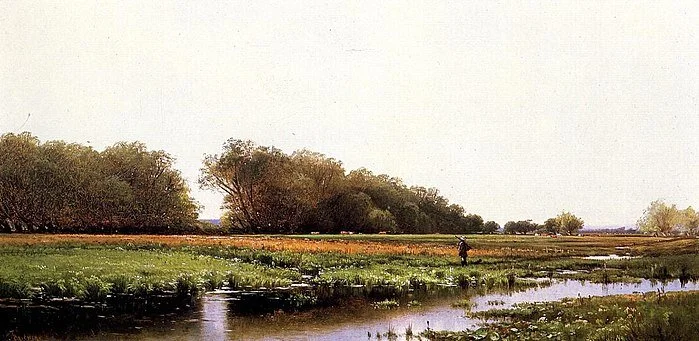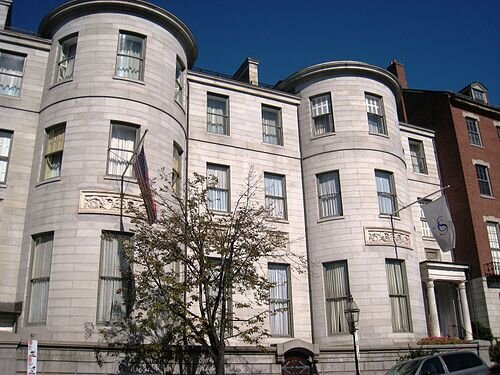'Our world may be a little narrow'
“Hunter in the Meadows of Old Newburyport, Massachusetts, c. 1873, by Alfred Thompson Bricher. Cattle have been turned into the marsh for pasture, a practice still allowed on some marsh farms of the area.
“The mood is on me to-night only becuase I have listened to several hours of intelligent conversation and I am not a very brilliant person. Sometimes here on Pequod Island and back again on Beacon Street, I have the most curious delusion that our world may be a little narrow. I cannot avoid the impression that something has gone out of it (what, I do not know), and that our little world moves in an orbit of its own, a gain one of those confounded circles, or possibly an ellipse. Do you suppose that it moves without any relation to anything else? That it is broken off from some greater planet like the moon? We talk of life, we talk of art, but do we actually know anything about either? Have any of us really lived? ‘‘
― John P. Marquand (1893-1960), in The Late George Apley (1937), a partly satiric novel about Boston Brahmins. Pequod Island is partly based on a country place in Marquand’s family in Newburyport, on the Merrimack River.
The Somerset Club, a center of old Boston Brahmin society, 42–43 Beacon Street, Boston

